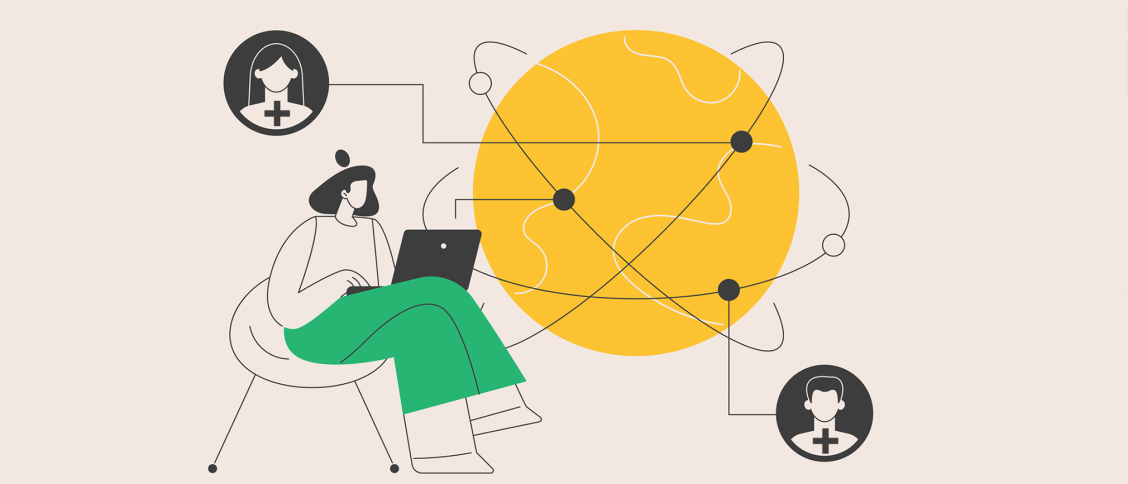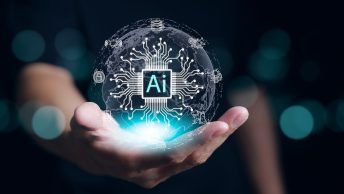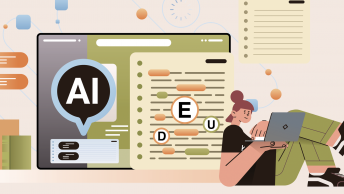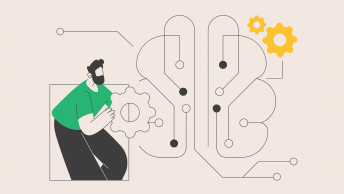In the near future, AI and AGI will affect various aspects of human health and longevity, greatly influencing the progress of medicine and human treatment. AGI will be able to understand, learn, and apply knowledge across various tasks, which can significantly enhance healthcare in numerous ways. I believe that in 10-15 years, AGI will enhance us as smartphones have already. I will elaborate more on augmented humans in the second part of this article.
This transformation will translate directly into people’s life expectancy and a much lower number of diseases, and in effect, into a higher population. We see that the population in developed countries is decreasing due to the high standard of life, but if life expectancy skyrockets to, say, 130y, we will break the cycle of birth vs death, and we might get to the point where overpopulation will be an issue to solve.
How will AGI influence our well-being and longevity?
Research:
Let’s start with research. AGI can streamline medical research and drug discovery processes. With its capacity to process vast amounts of data and identify complex patterns, AGI can accelerate the development of new medications and treatment protocols. This could lead to more effective treatments for various diseases, including cancer, neurodegenerative disorders, and infectious diseases.
Personalized track record
AGI can improve personalized medicine by analyzing individual patient data and tailoring treatment plans to specific genetic, environmental, and lifestyle factors. This personalized approach can optimize treatment outcomes, minimize negative effects, and enhance patient well-being. Compared to doctors, AGI will have absolute memory, never missing important facts, and will analyze and treat the patients holistically – something which rarely occurs today since doctors specialize in each treatment area. Nowadays, to figure out the cause of the problem, we often need to visit various clinics and doctors to hear often contradictory diagnoses. With AGI, it will be much simpler since it will be one entity keeping attention on your health and having a conclusion based on cross-examination of the patient
Enhanced diagnostic accuracy and efficiency.
By analyzing medical images, genetic profiles, and patient histories, AGI algorithms can assist healthcare professionals in detecting diseases at earlier stages and when interventions are most effective. This early detection can lead to better prognoses and improved patient outcomes. Combined with image detection algorithms, AGI will be able to set diagnoses based on the colour and changes in your retina, face expressions, or skin tone—all much more accurate than any of current diagnostics.
Affordability. Medical care for everyone
AI-driven systems will be able to streamline administrative tasks, reduce healthcare costs, and improve the accessibility and affordability of healthcare services. Moreover, AGI-powered virtual assistants and telemedicine platforms can provide personalized medical advice, remote monitoring, and timely interventions, particularly in underserved or remote areas. If we do it right – we will democratize access to medicine and help a larger number of people. Of course, all that assumes that there will be regulations on the pharmaceutical companies so they don’t turn this advantage into their profit.
Cross-Innovations
The problem with our current system is that it is divided and decentralized, and researchers often work in separate streams. With AGI, when everything is connected to one entity, it will be much easier to find a solution by conducting cross-research between science areas.
Furthermore, AGI can accelerate medical breakthroughs by amplifying interdisciplinary collaboration and innovation. AGI can uncover solutions to complex healthcare challenges by analysing diverse datasets from multiple scientific fields.
The best disease is the one which never happens.
Early Disease Detection and Intervention:
AGI can also play a crucial role in early disease detection and intervention, allowing healthcare providers to identify health issues at their earliest stages when interventions are most effective. AGI algorithms can detect subtle changes indicative of disease onset or progression by analyzing medical imaging data, genetic markers, and patient health records. Early intervention enhanced by AGI-powered diagnostic tools can lead to more favourable treatment outcomes, reducing morbidity and mortality rates and extending human lifespan.
Health Monitoring and Lifestyle Optimization:
In addition to medical interventions, AGI will allow individuals to take proactive steps to optimize their health and well-being. Through wearable devices, smart sensors, and personalized health apps, AGI algorithms can monitor vital signs, track health metrics, and provide real-time feedback on lifestyle choices. By promoting health behaviours, facilitating early intervention, and empowering individuals to make informed decisions about their health, AGI-enabled health monitoring technologies can potentially prolong the human lifespan and improve the overall quality of life.
To sum up this part, I believe that if we take our physical health – we will be in a much better place with the help of AGI/AI. On the other hand, when we consider our mental health – my opinion is much more complicated.
Mental health
I think our mental health deserves special attention in this article. As you have read above I have no doubt that AGI will have a positive impact on our development and physical health, while certainly the emergence of AGI will take a toll on our mind. It is already apparent that AI is affecting labour markets. Sam Altman has already announced that Chat GPT5.0 will result in about 100M jobs disappearing from the market. So, the next few years will be difficult for many people accustomed to the status quo. Many jobs will disappear, which we are already seeing, on the other hand I believe many new ones will be created.
However, there will be a period of adaptation during which there will be high unemployment, and people will have to adjust to the new reality.
As we know, work and the feeling of being needed are at the basis of our good mental health, so we can expect a difficult transition period where people will feel lost. Of course, this can create jobs requiring empathy and interpersonal skills to care for people who will be looking for a place for themselves in the new world.
Overall, it’s difficult to talk about our mental health because I think with the advent of AGI, our pattern of thinking will change, and perhaps the needs we have now will change too, because AGI could potentially make us many times smarter.
In the near future, AGI will mentally change us, eventually turning us into augmented humans—a new species augmented through technology.
Augmented humans
In my opinion, we will eventually evolve into the next iteration of humans. I called it augmented humans since our brains will be directly connected to an online database, which, in theory, will be connected to AGI. This statement opens many questions, of course. We are already living in an age of deception and disinformation. What should we do to protect ourselves and our kids when the information will be served directly to our heads? And, of course, how will AGI affect our species and who we are?
Currently, we use virtual assistants like Alexa or Chatbots, which help us solve problems or quickly find answers to our questions. Younger people use voice assistants instead of regular searches to get the information needed. Imagine the perfect assistant AGI, understanding all your needs and serving you information without any delay—seamless.
Is this not better than searching in the search engine, picking the right answer and avoiding all the necessary distractions around it? This is the new way our kids will (and already are) collect information – via AI/AGI-powered assistants, who will eventually be better at communicating with you in your native language or later directly to your brain.
In the future, this assistant can be connected directly to us through neurobots or other technology, and on top of that, AGI will be another layer of finding and serving relevant information.
From the invention of smartphones to the rise of Artificial General Intelligence (AGI), these innovations have the potential to augment human capabilities significantly. AGI will augment humans in the same way smartphones influenced human “intelligence”. We will be seamlessly integrated with online knowledge in the future through advanced technologies like nanobots or neural interfaces. I think it’s possible that in 15y+, we will find a better way to adapt online knowledge directly to our brains. Let’s look at the analogy with the smartphones.
The Smartphone Revolution:
I have written about it so many times. Smartphones were the most significant invention of the last 30 years. The adoption of smartphones has fundamentally altered the way humans access information, communicate, and navigate daily life. With the tap of a screen, people can access a wealth of knowledge, connect with others across the globe, and accomplish tasks with unprecedented efficiency. Smartphones have become extensions of ourselves, enhancing our cognitive abilities and serving as indispensable tools in both personal and professional spheres.
AGI as the Next Evolutionary Leap:
Building upon the foundation created by smartphones, the discovery and development of AGI will be the next evolutionary leap in augmenting human intelligence. AGI, with its capacity for autonomous learning and problem-solving across diverse domains, will revolutionize how we interact with information and navigate complex tasks. At its core, AGI is a personal assistant on steroids, capable of finding information faster and more efficiently than ever before.
Seamless Integration with Online Knowledge:
As AGI technologies evolve, we can envision a future where humans seamlessly integrate with online knowledge through advanced interfaces such as nanobots or neural links. These interfaces would enable direct access to vast information repositories, allowing individuals to retrieve data, acquire new skills, and even communicate telepathically with others connected to the same network. This unity with online knowledge has the potential to revolutionize education, research, and collaborative endeavours on a global scale. That’s why I’m rather optimistic about technological evolution. I think with time, humans will catch up with AGI since, thanks to its capabilities, we will also be smarter numerous times than we are currently.
Even if we don’t develop the technology that will be the next step for smartphones, it doesn’t change the fact that AGI will be, for future generations, the layer of communication with information. It will be much more accessible (and much faster) than directly using it.
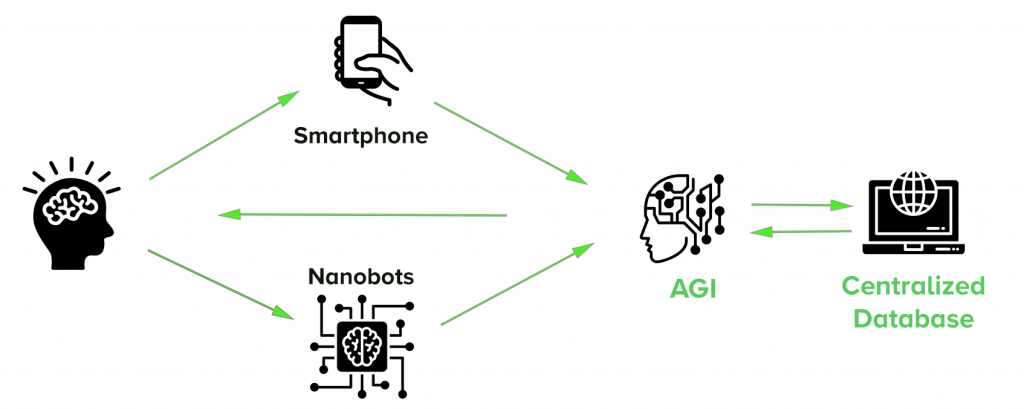
Consciousness
I listened recently to an uplifting conversation between Tyson de Grass and Ray Kurzweil, two great minds of technology and modern science. One of the gentlemen (I think it was Tyson) asked the question:
“Assuming that AGI will make us one million times more intelligent than we are currently, will we also be one million times more conscious and moral?”
It made me think. As for morality, I’m not sure (I hope it will), but as for consciousness, I think the answer is yes. If we are that much more conscious, how will it affect our understanding of the world and its processes, how will it influence how we behave as humans, and ultimately, how will it affect our well-being?
Why understanding this is so important? We can’t talk of the future and our well-being through the prism of the current state of who we are. We will evolve and change, and potentially, it’s difficult to understand how this change will affect our well-being and the need for things we consider our baseline to be happy.
Will we need the same things to achieve happiness?
We can be sure that, at this point, the rise of AGI will greatly enhance our understanding of ourselves and the world around us.
When?
Of course, it’s almost impossible to predict when and how fast it all happens, but let’s look at the glass ball.
2024 – Chat GPT 5.0 will be introduced to the public (summer-fall 2024). Sam Altman already said that Chat GPT5.0 will affect around 100M jobs globally. I don’t believe that jobs will disappear, but we will definitely have a transition period during which unemployed people must adjust to the new reality and reeducate for it.
2025 – Time needed for technology to be adopted and implementation/iterations
2026 – Spread out of tech / job market changing.
2027 – StarGate Project (100 B project by Microsoft) is estimated to be ready by that time. More and more computing centres will arise since we will need more computing power. NVidia will skyrocket.Raise of AGI.
2028 – Possible comeback and scaling of nuclear power. Since more and more power is needed for data centres. And information is power. There is no more effective way to produce energy than atom. Unless something won’t change due to AGI.
2029-30 – next tech shift—I think we will see the next tech shift in around 5 years. It could be advanced robotics, nanobots, or direct human-data interfaces(which would be best) that are effective in gaining power from the sun. It makes sense to enhance the technology of getting energy from our limitless and biggest battery—the Sun.
2035-40, the beginning of augmented humans. AGI will become the layer of reality for humans.
Summary
To sum up the effect of AGI on our well-being. It’s fairly easy to understand its implications on our physical health, but as it comes to our mental health – we need to consider the fact that there is a chance will evolve in the next generation. And we have the potential to become much more intelligent and to collaborate with AGI on the future of our species and the plan. That outcome would be of course the best for us and our future.
There are great opportunities, but there are some obstacles on the road. As always, with any technological and industrial revolution, there will be winners and losers. But if we prepare now for the new reality, control the development of AGI, and create over-state regulators of this technology, there is a good chance that AGI will bring us developments that no one dreamed of.
AGI will affect all areas of our lives, the most important of which is the education of future generations. I will outline this in the next article in the series.
Thank you for reading.

